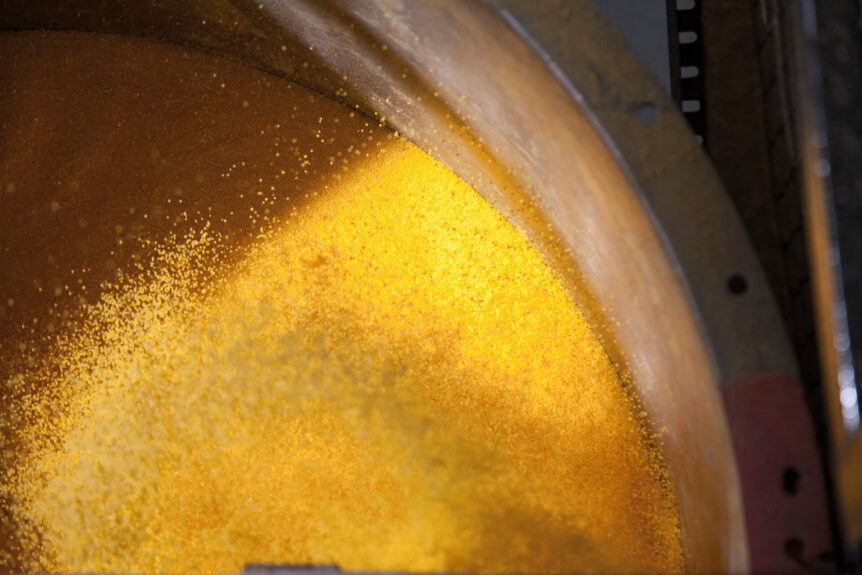*Note: Optigen® is known as Optisync® in Australia and New Zealand.
From precision nutrition that minimises waste to environmental analytical services, Alltech is helping producers lower their carbon footprint while increasing their profitability
As the feed and food supply chain faces continual pressure to reduce its environmental footprint, global animal health and nutrition company Alltech remains committed to helping the industry tackle this challenge. As part of this commitment, Alltech has announced the addition of its non-protein nitrogen source Optigen® to its Carbon Trust-accredited offerings.
The Carbon Trust has certified that the inclusion of Optigen in a cow’s diet can decrease the global warming potential of that diet and improve nitrogen utilisation. The Carbon Trust has validated that the replacement of high-carbon ingredients (such as soya) with Optigen significantly reduces the risk of a high carbon footprint. Optigen is a technology that provides a sustained release of ammonia to rumen microbes at an ideal rate, which helps to avoid periods of excess rumen ammonia, thereby reducing nitrogen excretion.
The Carbon Trust is a global organisation that provides independent advice to businesses, governments and institutions on reducing carbon emissions. Earlier this year, Alltech’s flagship brand, Yea-Sacc®, was also validated by the Carbon Trust to reduce methane emissions and nitrogen excretion.
“Relieving the burden of nitrogen excretion on the environment is possible by optimising rumen function, and Optigen offers a proven way of achieving that,” said Matthew Smith, vice president of Alltech. “This award from the Carbon Trust is another fantastic landmark as we continue to help producers lower their footprint while increasing their profitability.”
Measure before you manage
The Alltech® In Vitro Fermentation Model (IFM) is an effective tool for predicting farm- and feed-specific emissions. IFM simulates rumen fermentation and evaluates the digestibility of individual ingredients, compound feed and total mixed rations.
“By measuring the gas production of diets with IFM, we can calculate how much potential energy will be lost and the expected emissions per animal based on feeding a certain ration,” said Smith.
Through its Alltech E-CO2 service, Alltech is the leading global provider of Carbon Trust-accredited environmental assessments. Assessors gather information from across the entire farm and provide a bespoke report outlining the levels of emissions from each source, along with a total carbon footprint for the farm.
“We help producers understand where their farms fit into the emissions picture and then make recommendations to improve efficiencies,” explained Smith. “Using our assessment tools, we can predict the probable economic benefits as well as the expected reduction in carbon footprint from our suggested added efficiencies, and then we work with farmers to achieve those benefits.”
About the Carbon Trust:
Established in 2001, the Carbon Trust works with businesses, governments and institutions around the world, helping them contribute to, and benefit from, a more sustainable future through carbon reduction, resource efficiency strategies and commercialising low-carbon businesses, systems and technologies.
The Carbon Trust:
- Works with corporates and governments, helping them to align their strategies with climate science and meet the goals of the Paris Agreement.
- Provides expert advice and assurance, giving investors and financial institutions the confidence that green finance will have genuinely green outcomes.
- Supports the development of low-carbon technologies and solutions, building the foundations for the energy system of the future.
Headquartered in London, the Carbon Trust has a global team of over 30 nationalities based across five continents. For more information, visit www.carbontrust.com.

